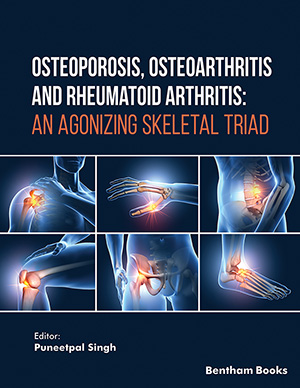
Abstract
Axial spondyloarthritis (axSpA) is a chronic inflammatory disease predominantly affecting the axial skeleton. axSpA includes radiographic (i.e., ankylosing spondylitis (AS)) and non-radiographic forms (nr-axSpA). Although recent studies have reported that patients with AS have impaired gait, axSpA’s consequences on gait remain unknown. The present review’s objectives were to identify: 1) how gait is assessed in patients with axSpA, and 2) what the gait characteristics are of patients with axSpA.
This systematic review’s protocol was registered in the Prospero database (CRD42020128509). Three databases were systematically searched using keywords related to axSpA and gait. Two independent reviewers selected the articles and extracted the data.
The search revealed two hundred titles and abstracts, and two articles were finally included in this review, comprising a total of 132 patients with axSpA. One of the included studies used the 6 m maximum gait velocity test (axSpA: 2.2 ± 0.5 m/s), and the other used the six-minute walk test (axSpA: 414 ± 106 m). Neither study involved a control group to compare gait.
Only two published studies assessed the gait performance of patients with axSpA using clinical tests. Furthermore, neither of them compared gait performance to healthy controls or differentiated gait between the AS and nr-axSpA forms of axSPA. The present literature review highlights the need for future research to learn more about how gait is impaired in different types of patients with axSpA.
Keywords: Axial spondyloarthritis, spondyloarthritis, gait, walk, locomotion, six-minute walk test.
[http://dx.doi.org/10.1136/ard.2008.104018] [PMID: 19433414]
[http://dx.doi.org/10.1177/1759720X18773726] [PMID: 29942364]
[http://dx.doi.org/10.1007/s10067-007-0727-6] [PMID: 17899306]
[http://dx.doi.org/10.1093/rheumatology/ket387] [PMID: 24324212]
[PMID: 29148402]
[http://dx.doi.org/10.1007/s10067-018-4397-3] [PMID: 30588555]
[http://dx.doi.org/10.1038/nrrheum.2012.39] [PMID: 22487797]
[http://dx.doi.org/10.1016/j.semarthrit.2016.09.002] [PMID: 27855973]
[http://dx.doi.org/10.1371/journal.pone.0230268] [PMID: 32196530]
[http://dx.doi.org/10.1136/annrheumdis-2011-201252] [PMID: 22459541]
[http://dx.doi.org/10.1177/1759720X12468658] [PMID: 23514983]
[http://dx.doi.org/10.1093/rheumatology/kex475] [PMID: 29373733]
[http://dx.doi.org/10.1093/rheumatology/key200] [PMID: 30445484]
[http://dx.doi.org/10.1371/journal.pmed.1000097] [PMID: 19621072]
[http://dx.doi.org/10.1111/1756-185X.13385] [PMID: 30187695]
[http://dx.doi.org/10.1016/j.exger.2017.05.005] [PMID: 28499954]
[http://dx.doi.org/10.1186/1756-0500-6-185] [PMID: 23651526]
[http://dx.doi.org/10.1007/s00296-019-04494-3] [PMID: 31848736]
[http://dx.doi.org/10.1016/j.gaitpost.2019.11.002] [PMID: 31715431]
[http://dx.doi.org/10.1136/ard.51.7.898] [PMID: 1632666]
[http://dx.doi.org/10.1007/s10067-018-4401-y] [PMID: 30607653]
[http://dx.doi.org/10.1016/j.gaitpost.2011.02.002] [PMID: 21377366]
[http://dx.doi.org/10.1007/s11517-010-0731-x] [PMID: 21229328]
[http://dx.doi.org/10.20463/jenb.2016.09.20.3.7] [PMID: 27757387]
[http://dx.doi.org/10.1136/ard.2009.121327] [PMID: 20511615]
[http://dx.doi.org/10.3389/fnhum.2017.00353] [PMID: 28824393]
[http://dx.doi.org/10.5152/eurjrheum.2015.15104] [PMID: 27708961]
[http://dx.doi.org/10.1186/s12891-016-1218-1] [PMID: 27553492]
[http://dx.doi.org/10.1002/art.21466] [PMID: 16208674]
[http://dx.doi.org/10.1097/BOR.0000000000000387] [PMID: 28376060]
[http://dx.doi.org/10.1164/ajrccm.166.1.at1102] [PMID: 12091180]
[http://dx.doi.org/10.1097/00004669-200126020-00010]
[http://dx.doi.org/10.1080/17434440.2016.1198694] [PMID: 27309490]
[http://dx.doi.org/10.3390/s20092660] [PMID: 32384806]
[http://dx.doi.org/10.1371/journal.pone.0155984] [PMID: 27271994]
[http://dx.doi.org/10.4093/dmj.2018.42.1.82] [PMID: 29504308]
[PMID: 17492047]
[http://dx.doi.org/10.1093/ageing/26.1.15] [PMID: 9143432]
[http://dx.doi.org/10.1007/s00296-013-2723-2] [PMID: 23543327]
 56
56 1
1











